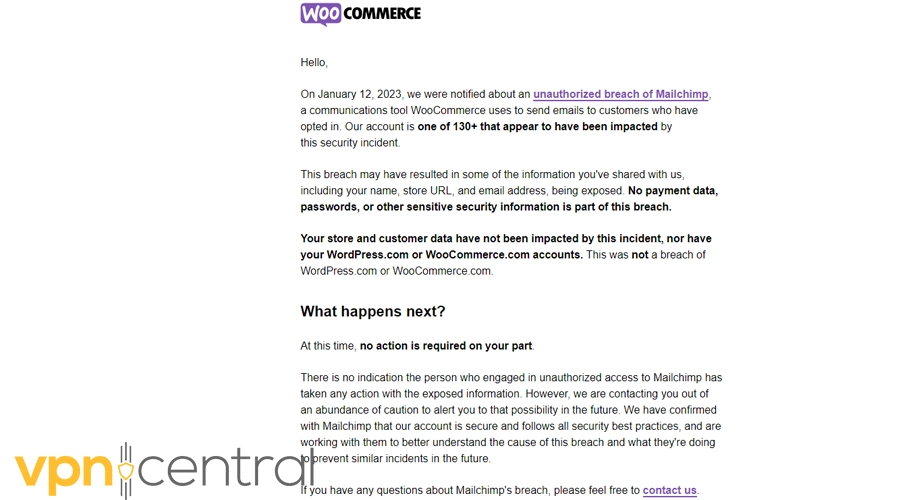FanDuel Warns About Possibly Stolen User Data in a Breach
2 min. read
Updated on
Read our disclosure page to find out how can you help VPNCentral sustain the editorial team Read more

FanDuel customers received an email from the vendor confirming that an unauthorized actor had obtained their names and email addresses.
However, the gambling company also stressed that no customer passwords, financial account information, or any other personal details were exposed.
FanDuel previously said that this wasn’t a breach of its internal systems. Instead, a third-party technology vendor that sends transactional emails on its behalf experienced a security incident. Later, the company confirmed to the media that it was referring to Mailchimp.
On January 13th, Mailchimp posted an official statement regarding the security incident. It revealed someone used employee credentials they had obtained in the attack to access its accounts.
FanDuel is asking customers to stay vigilant
In the email FanDuel sent, the gambling company asked its customers to remain on the lookout for potential phishing attacks and attempts to take over their accounts.
It suggested regularly updating passwords and coming up with strong combinations they’re not already using on other platforms. FanDuel also recommended activating multi-factor authentication.
The company reminded it would never ask for personal information:
“FanDuel will never email customers directly and request personal information to resolve an issue.”
Besides following these tips, users may also want to use a VPN when connecting to FanDuel for extra security. If your VPN isn’t working with FanDuel, we have several solutions that could fix the issue.
More companies were affected by the incident
The recent Mailchimp breach didn’t only affect FanDuel.
More companies later notified their customers about the attack, including WooCommerce, Yuga Labs, and the Solana Foundation.
WooCommerce confirmed in a customer email that the breach impacted 130+ accounts, including its own.

Mailchimp experienced a similar breach in August 2022. In that attack, the perpetrators targeted some of its cryptocurrency-related accounts and others, including DigitalOcean.
Let us know what you think about FanDuel’s warning in the comment section below!







User forum
0 messages